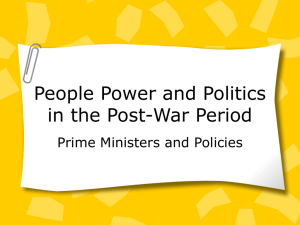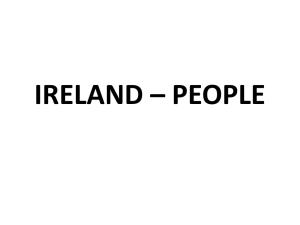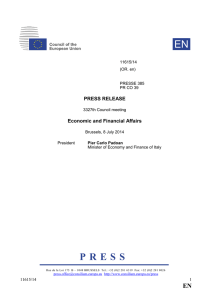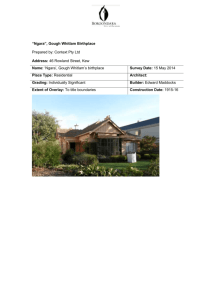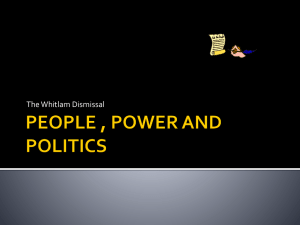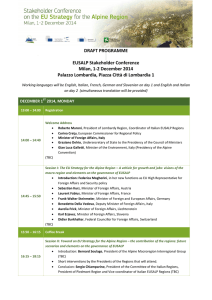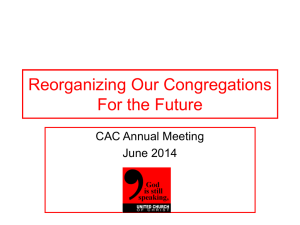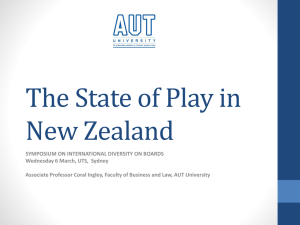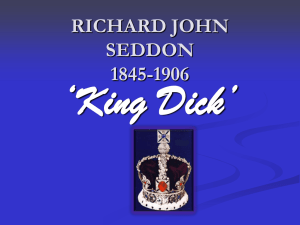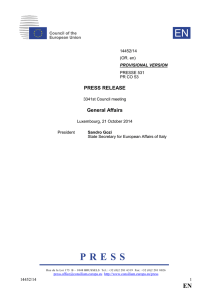Assess the Significance of a Post War Prime Minister
advertisement
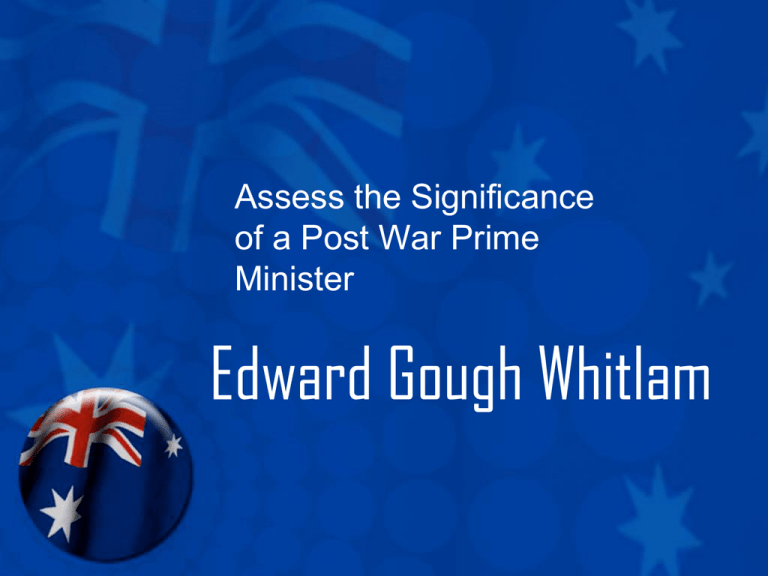
Assess the Significance of a Post War Prime Minister Edward Gough Whitlam Gough Whitlam- Rise to Power • Born: 11 July 1916, Kew, Victoria • Education: Telopea Park High School and Canberra Grammar School; University of Sydney (1946) • Employment: RAAF navigator; barrister • Memberships: Independent Commission on International Humanitarian Issues and World Heritage Committee; World Conservation Union (IUCN); University of Sydney Senate; Academy of Athens; Hanoi Architectural Heritage Foundation • Marriage: 22 April 1942, Vaucluse, Sydney • Children: Anthony (1944); Nicholas (1945); Stephen (1950); Catherine (1954) • Honours: Queen’s Counsel (1962); Socialist International Plate of Honour (1976); Companion of the Order of Australia (1978) Political Career • • • • • Term as PM: 5 December 1972 – 11 November 1975 Terms as MP: House of Representatives: 17 February 1953 – 31 July 1978 (Werriwa); Deputy Leader of the Opposition (March 1960 – February 1967); Leader of the Opposition (February 1967 – December 1972; November 1975 – December 1977) Portfolios: Thirteen portfolios: 5–19 December 1972 Foreign Affairs: December 1972 – November 1973 Environment: July 1975 Memberships: Australian Labor Party (NSW branch, 1945–; federal parliamentary Labor Party leader, February 1967 – December 1977); Socialist International; UNESCO Executive Board After: Australian Ambassador to UNESCO (1983–86); Chair, National Gallery of Australia Council (1987–90); Chair, Australia–China Council (1986–91 Henry Hyde Champion (Journalist) John Percy Jones (Businessman) Nettie Palmer (Writer) Ernest Besant-Scott (Historian) Lucy Morice (Feminist) Charles Strong (Clergyman) William Henry Archer (Statistician) Edward Shann (Economist) Charles Marson (Clergyman) David Charlesto (Trade Unionist) John Howlett Ros Fabian Society • The Australian Fabian Society was established in 1947. Inspired by the Fabian Society in the United Kingdom, it is dedicated to Fabianism, the focus on the advancement of socialist ideas through gradual influence and patiently promoting socialist ideals to intellectual circles and groups with power. Aims of the Fabian Society • The Australian Fabian Society cites their 'Four General Aims' on their organisation's website as being: • 1. To contribute to a renaissance of left of centre and progressive thought, by generating and disseminating ideas that are original, meet the challenge of the times, and are of high intellectual quality. • 2. To contribute, by getting these ideas into the public domain, to the creation of a left of centre political culture and consensus. • 3. To help create an active movement of people identifying with the left of centre and engaged in political debate. • 4. To influence the ideas and policies of the Labor Party (and other parties) and Labor Governments to encourage progressive reform in practice 1960’S-1970’S CONTEXT POLITICAL INSTABILITY Gorton's demise came in 1971, when the Defence Minister, Malcolm Fraser, resigned from Cabinet, claiming that Gorton had a "manic determination to get his own way" and alleging disloyalty in Gorton's treatment of Fraser. A challenge to Gorton's leadership was mounted resulting in a tied vote. Gorton used his own casting vote to give the leadership to William McMahon. Why did Labor win? • • • • Liberal PM – William McMahon 23 years of Liberal Government Unpopularity during the Vietnam era Australians wanted a change Source Study: Photographs Why do you think Gough Whitlam is dressed this way? What is the general impression of Whitlam gained from this source? Source Study: POLICY SPEECH Gough Whitlam’s Policy Speech at Blacktown Civic Centre What do you think are the issues that would have led to many people voting for Labor in 1972? Explain why. Gough Whitlam - Prime Minister 13 portfolios 5/12/72 – 19/12/72 Lance Barnard - Deputy Prime • • • • • • • • • • • • Minister for Foreign Affairs Treasurer Attorney-General Minister for Customs and Excise Minister for Trade and Industry Minister for Shipping and Transport Minister for Education and Science Minister for Civil Aviation Minister for Housing Minister for Works Minister for External Territories Minister for the Environment, Aborigines and the Arts • 40 major policy changes started as part of reform program Minister - 14 portfolios •Minister for Defence •Minister for Supply •Minister for the Army •Minister for the Navy •Minister for Air •Postmaster-General •Minister for Labour and National Service •Minister for Social Services •Minister for Immigration •Minister for the Interior •Minister for Primary Industry •Minister for Repatriation •Minister for Health •Minister for National Development What does this suggest about Whitlam’s leadership style? How do you think Australians would have viewed him in light of this? 5/12/72 – 19/12/72 Gough Whitlam - Prime Minister 13 portfolios • • • • • • • • • • • • Minister for Foreign Affairs Treasurer Attorney-General Minister for Customs and Excise Minister for Trade and Industry Minister for Shipping and Transport Minister for Education and Science Minister for Civil Aviation Minister for Housing Minister for Works Minister for External Territories Minister for the Environment, Aborigines and the Arts • 40 major policy changes started as part of reform program Lance Barnard - Deputy Prime Minister - 14 portfolios •Minister for Defence •Minister for Supply •Minister for the Army •Minister for the Navy •Minister for Air •Postmaster-General •Minister for Labour and National Service •Minister for Social Services •Minister for Immigration •Minister for the Interior •Minister for Primary Industry •Minister for Repatriation •Minister for Health •Minister for National Development What does this suggest about Whitlam’s leadership style? How do you think Australians would have viewed him in light of this? International context • 1973-74 world oil crisis. Aust was very dependant on Middle East oil. Oil was cheap and Australians needed cheap oil to run cars for transport out to ever expanding suburbs. • 1973 Arab countries stopped exporting to some western countries after US supported Israel in war with Syria and Egypt. • Price of oil skyrocketed, permeating every domestic industry. The result was rampant inflation. Gough’s Election Speech “Men and Women of Australia….” • http://whitlamdismissal.com/spe eches/72-11-13_it's-time.shtml ITS TIME • “It’s time for freedom, It’s time for moving, It’s time to begin, Yes It’s time It’s time Australia, It’s time for moving, It’s time for proving, Yes It’s time” 1972- Policies of Change • Reforms were made, among others, in the areas of education health care, Aboriginal land rights, women’s rights and family law. The voting age was reduced from 21 to 18 and the death penalty for federal crimes was abolished. • An important reform in education was the abolition of university fees, which allowed many young people, and, importantly women, an opportunity to obtain a university degree and broaden their career choices. • By introducing Medibank, the Whitlam Government also ensured that all Australians would have free access to health care. • In 1972, the Whitlam Government took the important foreign policy step of establishing diplomatic relations with the government of the People’s Republic of China. Policies of Change • In all, there were 507 pieces of legislation enacted. Many of Australia's present institutions began in the Whitlam era: Women's Electoral Lobby; the Australian Heritage Commission; Law Reform Commission; National Sewerage Program; Industries Assistance Commission; Australian National Railways Commission; FM and community radio licensing; and the Prices Justification Tribunal. Legislation under Whitlam • The Administrative Appeals Tribunal Act 1975 (Cth), which established the means to review the decisions of government ministers and officials; • The Trade Practices Act 1974 (Cth), which made sure consumers were protected against faulty products and misleading conduct by sellers or manufacturers. It also made restrictive trade practices illegal and set down the law against copyright infringement; • The Racial Discrimination Act 1975 (Cth), which made racial discrimination illegal in Australia. This law covers discrimination in areas such as employment, buying or renting property, accessing public places and the provision of goods and services; and • The Prices Justification Act 1973 (Cth), which established a Tribunal to monitor the prices of goods and services supplied to consumers. FOREIGN POLICY-A PARADIGMATIC SHIFT • • • Differences between the conservative Coalition and Labor sides on foreign policy up to 1983 corresponded broadly to the differences in international relations (IR) theory between ‘realism’ and ‘idealism’. That argument in IR theory became known retrospectively as the Great Debate. Australian conservative politicians, especially under the influence of Menzies and close associates, understood international relations as a matter of interests and power. Australia had a small population and little direct power, so it needed to attach itself to ‘great and powerful friends’.. Australian conservatives distrusted—indeed privately rather scorned—the moralism and legalism of international idealism. Menzies, for example, had little time for the hopes attached to the United Nations as a guarantor of peace and prosperity. On the other hand Evatt and the intellectuals and socialists in the Labor Party thought that Australia should build its foreign policy around moral and legal idealism, the United Nations, and the aspirations of the ‘newly emerging’ nations. It is tempting to see those differences again between the present Australian government and the opposition—Labor, Green and Democrat. http://aso.gov.au/titles/historical/whitlam-visit-philippines/clip3/ • Divergence between Whitlam’s and Fraser’s approaches to foreign policy further illustrates the difference between idealist and realist approaches to international relations. Gough Whitlam and the Labor party generally opposed the United States’ role in the conflict in Vietnam; indeed, some members of the Whitlam government were violently critical, especially when the United States bombed Hanoi. At the same time Whitlam stressed: • Australia’s independent role in the world under his government • , His attachment to the United Nations and to the peaceful resolution of conflict, to détente, and so on. • His own agenda was broadly idealist and multilateralist, EXCERPT FROM WHITLAM’S 1974 SPEECH http://whitlamdismissal.com/speeches/74-04-29_policy-speech.shtml • • • • • • • • • • “ This is the most genuinely international government Australia has ever had. We have placed our relationships with the United States and the United Kingdom on the basis of mature partnership. We have renegotiated the agreement for the United States Naval Communication Station at North West Cape. The agreement signed by our opponents was a denial of Australia' s rights. The new agreement asserts and establishes them. We have widened our horizons, sought and achieved growing co-operation with the countries of the Commonwealth and with the nations round the Indian and South Pacific Oceans. We have brought co-operation and friendship with Japan, our greatest trading partner, to a new level. Following an agreement in principle between Prime Minister Tanaka and myself at the Ministerial Committee meeting in Tokyo last October, we will enter into a treaty of friendship - the Treaty of Nara - this year. We have sought to break down ideological constraints which had for so long obstructed meaningful relationships with countries such as China, East Germany and North Vietnam. We have sought to remove any taint of racism from our national and international policies. We have co-operated closely with the Government and House of Assembly of Papua New Guinea as our neighbour moves towards independence by December this year. We have forged new and intimate links with the countries of ASEAN - Indonesia, the Philippines, Malaysia, Thailand and Singapore. We have accepted their invitation to co-operate with ASEAN on development projects. With the agreement of all its members, we have secured the remodelling of SEATO. THE AGEGARRY WOODWARD • • • “Everyone associates Whitlam with recognition of China. The Chinese refer to him, to his delight, as the man "who dug the well". China went from being a threat to becoming a political and economic partner of accelerating importance. With Japan, Whitlam sought to broaden a narrow trading relationship by injecting values. He agreed to negotiate a treaty that would assure it against discrimination in immigration, investment and secure supply of resources, all areas of historical and contemporary sensitivity. Other initiatives — recognition of North Korea, support for an Indian Ocean Zone of Peace, resources diplomacy — also irritated Washington” 1973-CHINA “Recognising that Australia's future prosperity and security required that it be more deeply engaged in its own region, the Whitlam Government recognised the People's Republic of China in 1972 with a One China policy when it was not quite so fashionable to do so. This early recognition has always held us in good stead in our relationship with China.” Stephen Smith International Human Rights • Between 5 December 1972 and 11 November 1975, Whitlam's government ratified in excess of 130 more international treaties, statutes and conventions, more than any other since Federation. THE DISMISSAL- 1975- CHANGING PERSPECTIVES JUSTIFIABLY SACKED ASSASSINATED UNCONSTITUTIONALLY REMOVED HISTORIANS ON WHITLAM • “The legacy of the Whitlam government is that of having been a moderniser of Australia and an exemplar of what, in social democracy, is attainable. It was a government which made more apparent, to the world and Australians, a nation which was independent, industrialised, culturally unique, a predominantly urban society (1) and above all, modern. As Whitlam-policies have been eroded, the more they have become ideals and thus his legacy” • Joshua Markham Stuart McIntyre • “Whitlam cultivated a nationalism that allowed for internationalism. With the revival of local publishing, theatre and film, they contributed to a cultural renaissance that made it possible to see life in this country as possessing a depth of meaning and richness of possibility. The completion in 1973 of the Sydney Opera House and the acquisition by the National Gallery of 'Blue Poles', the large dribbling creation of Jackson Pollock, caught the mood of expansive engagement.” • “It is a terrible shame that Whitlam is best known for his exit from power rather than his remarkable policy achievements. Elements of Whitlam's character and achievements have been debated. What cannot is that many of the best aspects of today's Australia would not exist without Whitlam's initiatives.” EXPERIMENT IN LEADERSHIP • “For all the praise they will lavish on him on these anniversaries, not one of today's aspiring future Labor prime ministers would see a model for them in Whitlam's high-risk, crashthrough-or-crash style of leadership. High-wire politics is the antithesis of the 21st-century Labor style, which is marked by timidity and caution”. • Geoff Kitney • Political Writer SMH 2002 Wallace Brown • “Whitlam was the most paradoxical of all prime ministers in the last half of the 20th century. A man of superb intellect, knowledge, and literacy, he yet had little ability when it came to economics ... Whitlam rivalled Menzies in his passion for the House of Representatives and ability to use it as his stage, and yet his parliamentary skills were rhetorical and not tactical. He could devise a strategy and then often botch the tactics in trying to implement that strategy ... Above all he was a man of grand vision with serious blind spots.” SIGNIFICANCE OF WHITLAM’S TERMS OF OFFICE Brought longest run of liberal party to an end Style of election harnessed support from media and musicians Experiment in leadership style FOREIGN POLICY DISTANCE FROM AMERICA Dismissal Power of governor general whitlam ESTABLISHED RELATIONS WITH CHINA HEALTH MEDICARE Education FREE TERTIARY PRE SCHOOL Minority issues Women and aborigines
